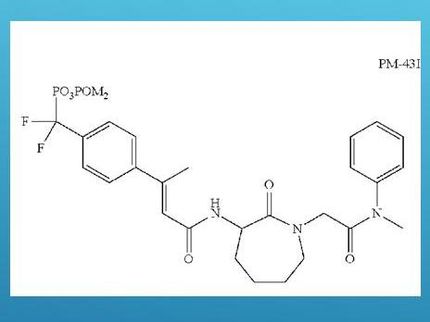Ectoine: a natural compound reduces lung inflammation
Scientists from the IUF Leibniz Research Institute for Environmental Medicine in Düsseldorf show that the extremolyte Ectoin® may positively influence lung inflammation associated with chronic obstructive pulmonary disease (COPD). From earlier studies it was known that Ectoin has the potential to prevent the induction of lung inflammation.
Chronic obstructive pulmonary disease (COPD) is one of the most frequent diseases in modern society. According to the World Health Organization (WHO), in 2007, 210 million people worldwide suffered from COPD. The main cause for COPD is the inhalation of air pollutants like tobacco smoke or particulate matter mainly coming from combustion processes. Effective anti-inflammatory therapies like the inhalation of glucocorticoids (cortisone) do not significantly improve the health status of the patients. The inflammatory reaction of the lung caused by the inhalation of pollutants is mostly dominated by a cell type (neutrophilic granulocytes) which is insensitive to this group of drugs.
Together with the company bitop AG, researchers at the Leibniz Research Institute of Environmental Medicine in Düsseldorf, Germany, investigated the effects of the extremolyte ectoine in a series of preclinical studies. Ectoin is a natural compound produced by bacteria which are able to survive under extreme conditions. The substance is known to stabilize cells and protect them against environmental stress.
“Exposure of the lungs to air pollution still poses a problem for the inhabitants of industrialised countries, leading to diseases like COPD with a high economic burden, and it is expected that this disease will be ranked as number three of death causing diseases within the next years. The local application of cell-protecting molecules like Ectoin is a possible new option in the treatment of COPD“ states Dr. Klaus Unfried at the IUF.
Researchers in the group of Dr. Unfried were able to demonstrate the cell-protecting capacity of Ectoin in a system of environmentally induced lung inflammation. From earlier studies it was known that Ectoin has the potential to prevent the induction of lung inflammation. In the recent issue of the well recognized European Respiratory Journal (Feb 2013; 41:433-442) the scientists describe that application of ectoine has also the ability to ameliorate ongoing lung inflammation. Together with members of the department of Traumatology and Hand Surgery and the department of Angiology, Pneumology and Cardiology of the University Clinics Düsseldorf, they were able to show that after exposure to pollutants the life span of the inflammatory cells is prolonged and thereby the inflammation is likely to be increased. The application of Ectoin in the lung prevents this enhancement of the inflammation. The biophysical stabilization of the cells reverts natural cell death to a level as it would occur without the effect of pollutants and, therefore, leads to a reduction of the inflammation. The relevance of this mechanism for humans was demonstrated using inflammatory cells isolated from the blood of COPD patients.
“Different studies with ectoine-containing products have shown good results in efficacy and safety in the treatment of allergic rhinitis or atopic dermatitis. An Ectoin containing inhalation solution has already shown first positive proof of concept results after application with patients suffering from mild asthma or pollutant induced lung inflammation. Based on the actual results from the IUF we are optimistic to further explore potential applications in humans " says Dr. Andreas Bilstein, Director at bitop AG.


















































